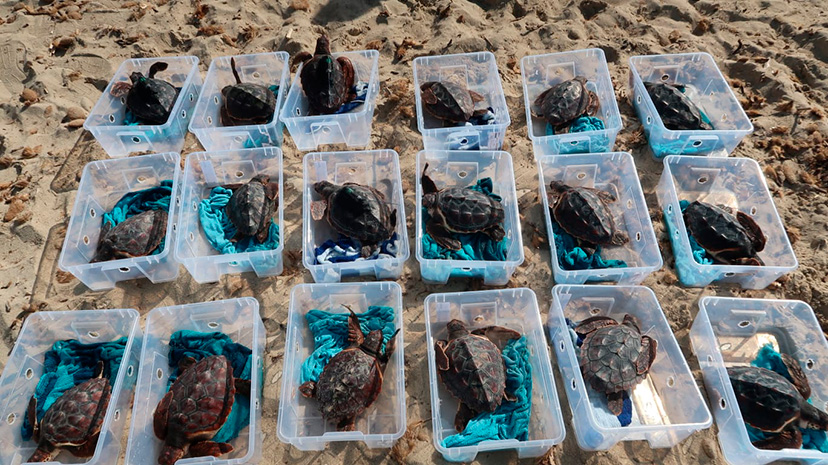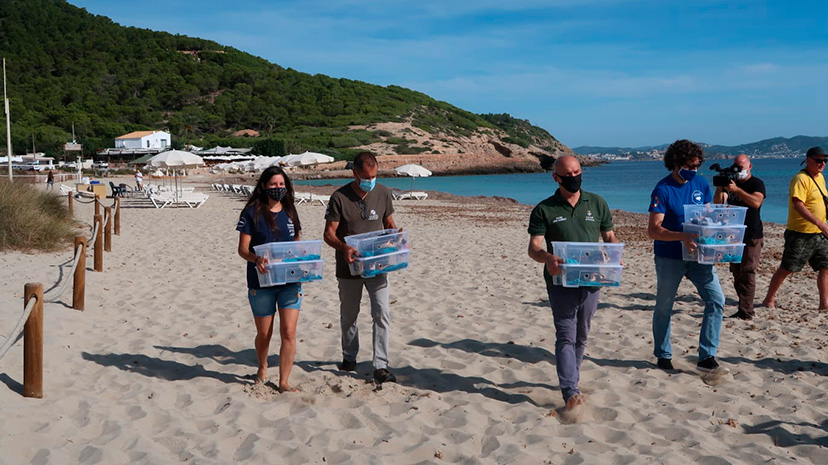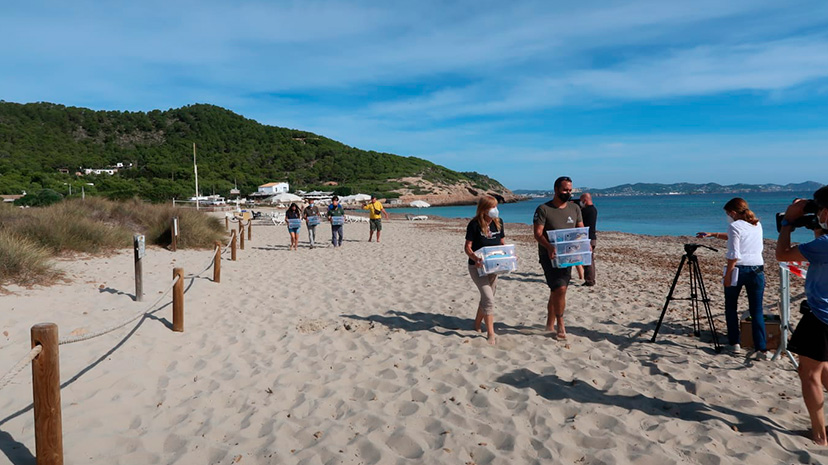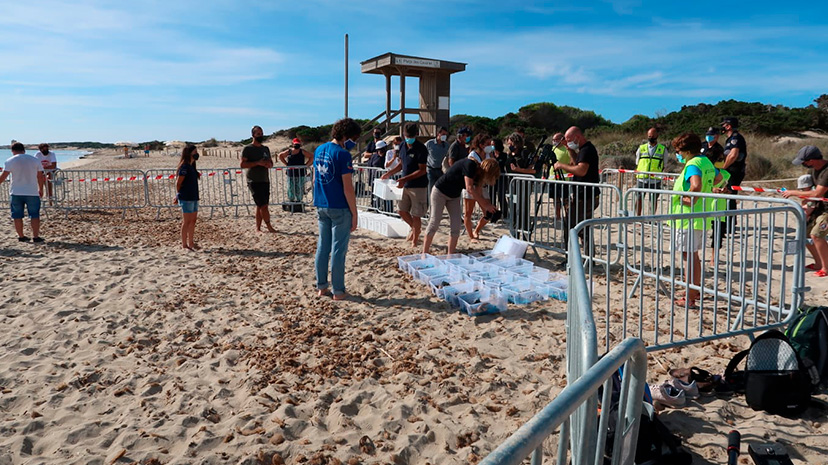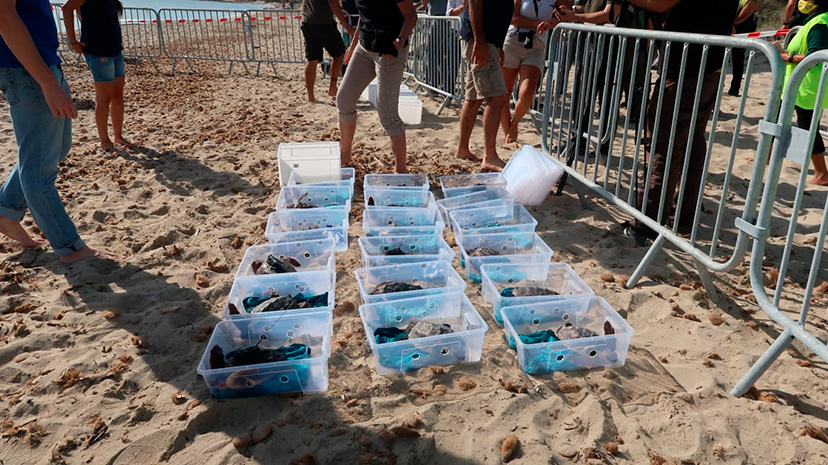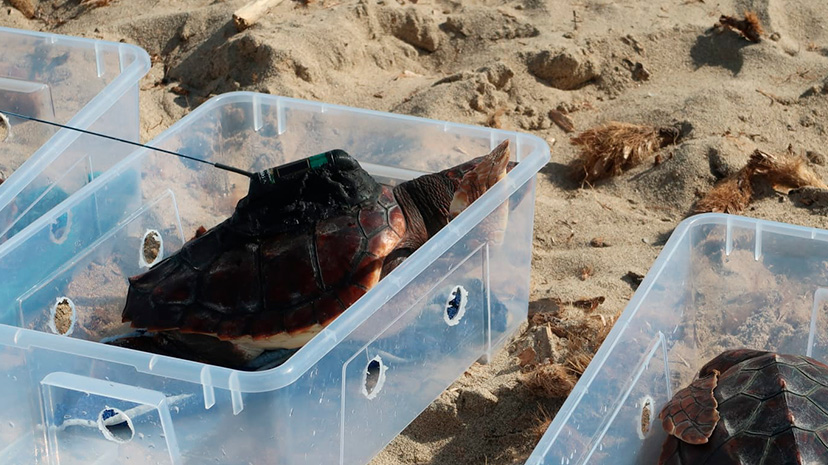For more than a decade now, marine turtles have been returning to different parts of the Mediterranean to lay their eggs. In the early 20th century, they were a natural presence, but the advent of intensive building activity and direct action of humans put an end to a ritual that has, however, been recovered and protected in recent years.
Since 2015, Caretta caretta, more commonly known as the loggerhead sea turtle, has managed to lay its eggs on the Ibizan shores, thanks to its waters which are cooler than the Eastern Mediterranean. It is no surprise that global warming and rising water temperatures have led to changes in the zones chosen by this species, which when they reach maturity, can travel thousands of miles over many years to lay their eggs on the beaches where they were born. According to renowned biologist Manu San Félix, the marine turtles that were born on our shores have come from the coasts of Florida (USA), and this species is endangered worldwide. Pollution and the proliferation of plastics, with the latter currently extremely concerning, given the marked increase in waste caused by incorrect disposal of gloves or masks, are the principal hazards for this species.
In the light of this situation, the Ibizan Marine Species Recovery Centre, known as CREM, has been set up with the aim of saving the lives of diverse marine species currently in danger of extinction. Through talks, visits and workshops, the CREM provides people with advice about what to do if you find a turtle or discover its tracks on the beach and how to ensure their protection. If you find a nest or spot turtle eggs, you need to let the centre know and mark out the zone.
In September 2020, the first turtle hatched in Ibiza
The first marine turtle to be hatched in Ibiza this year was in September in Cala Nova, on the island’s north-eastern coast, where some eggs began to hatch. The little turtle emerged after an incubation lasting 46 days, which is within the normal hatching period, usually around 45 to 65 days from the time the eggs are laid. A total of 99 eggs were spotted in this nest, 79 were brought to Es Cavallet, where there is a specially designated protected zone on this beach in the south of the island, and the remainder were transferred to an incubator. A team of experts care for the turtle eggs, to ensure that they do not come to any harm and can hatch without mishap, comprising experts from the Ses Salines Natural Park and other specialists, in addition to a team of volunteers who watch over them day and night.
A total of 37 marine turtles have hatched in 2020 in Ibiza, and they have been transferred to three centres in Mallorca and Valencia, where they will remain until they reach a weight of 1.5 kilos and measure 30 centimetres, which is the ideal size for ensuring their likelihood of survival, so that they can be released once more onto an Ibizan beach, to which we hope that they will return in future to lay their eggs, in this way recovering a species that is an essential part of the island’s ecosystem.
